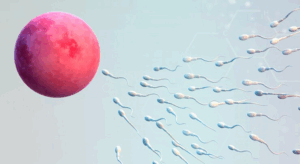
Prolistem® at the ESHRE 41th – Paris
We are proud to have participated in the 41st Annual ESHRE Conference in Paris, a premier international event where the global reproductive medicine community gathers

Azoospermia recovery. Getting diagnosed with zero sperm count (azoospermia) can be a major shock. If you and your partner are trying to conceive, this news might feel like a dead end. But here’s the truth: many men can recover from zero sperm count with the right diagnosis and treatment. In this article, we’ll break down the causes, treatments, and real chances of recovery in simple terms.
Azoospermia means that no sperm is found in a man’s ejaculate. This condition affects about 1% of all men and 10-15% of infertile men. It is a major cause of male infertility, but it doesn’t always mean you can’t have children.
There are two main types of azoospermia:
Each type has different treatment options, and many men can recover depending on the cause.
Yes, many men can recover from azoospermia with proper treatment. The success rate depends on the type and cause of azoospermia. Below, we explore different solutions that could help restore sperm production or retrieve sperm for fertility treatments.
If azoospermia is due to a blockage, treatment is often straightforward.
If your body isn’t producing sperm, treatment is more complex, but there are still options:
The chances of recovering from zero sperm count depend on the cause:
Recovery often depends on the treatment you can access, and cost is a major factor. Here’s a breakdown of azoospermia treatment costs in the US:
👉 Learn more about azoospermia treatment from Mayo Clinic.
Many insurance plans do not cover fertility treatments, so financial planning is important.
A zero sperm count diagnosis doesn’t mean the end of the road. Many men have successfully restored sperm production or retrieved sperm through advanced medical techniques. The key is to identify the cause, seek expert treatment, and stay positive. If natural recovery isn’t possible, options like sperm retrieval, IVF, and even sperm donation can still help you build a family.
If you’ve been diagnosed with azoospermia, don’t give up hope. Talk to a fertility specialist, explore your options, and take action today!
👉Reference: https://pmc.ncbi.nlm.nih.gov/articles/PMC6628476/pdf/12610_2019_Article_91.pdf

We are proud to have participated in the 41st Annual ESHRE Conference in Paris, a premier international event where the global reproductive medicine community gathers

Introduction: A New Era of Hope for Male Infertility The promising cure for azoospermia 2025 is redefining the future of male fertility. As medical science
Prolistem, a patented formula, has not been evaluated by the Food and Drug Administration. This product is not intended to diagnose, treat, cure, or prevent any disease.
PROLISTEM® is a Patented Formula
Copyright © 2025 Prolistem®